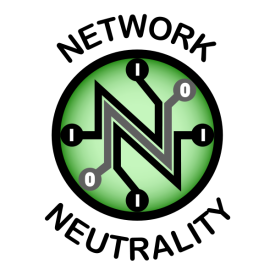 If you’ve been paying attention to the news lately, you already know that net neutrality is a big deal that’s getting a lot of play on just about every channel. You can bet it will also come up during the 2016 Presidential Election. That should be reason enough for everyone to understand all the details regarding this divisive issue. However, it’s also important because net neutrality will affect all of us.
If you’ve been paying attention to the news lately, you already know that net neutrality is a big deal that’s getting a lot of play on just about every channel. You can bet it will also come up during the 2016 Presidential Election. That should be reason enough for everyone to understand all the details regarding this divisive issue. However, it’s also important because net neutrality will affect all of us.
What Is Net Neutrality?
The term comes from Professor Wu of Columbia University, where he teaches media law. In 2003, he coined the term while talking about the common carrier concept. In theory, it outlines the idea that all forms of data online should be treated equally by service providers and/or the government. By doing so, the argument goes, carriers couldn’t treat some users with preference over others.
Of course, because this has entered the political arena, it has become politicized, meaning that what was once a simple concept can no longer be explained that way.
Supporters
Supporters of net neutrality tend to be unified on the issue, though there are certainly a number of reasons they come out for it. One of the main reasons is because they believe that large corporations are getting preferential treatment over the individual out there who wants to use the Internet.
Along the same lines, there’s the idea that these providers may be enforcing artificial scarcity in order to increase their prices and force people into paying more (who can go without the Internet these days, after all?).
Furthermore, many supporters believe that net neutrality is the only way to ensure that the Internet remains a free space. There is fear that at our current rate, corporations, governments or both may be able to choke the Internet so that it no longer serves the common man and their interests/needs. They imagine a future where the powers that be turn on the people and how cutting off the Internet could make that a real possibility.
It’ worth noting, too, that amongst the many politicians are at least two supporters who carry serious weight: Vinton Cerf and Tim Berners-Lee, men who basically helped build the Internet.
Detractors
On the other side of the coin are people who see this as politicians trying to control the Internet so it can’t be used against them. With the rise of sites like Wikileaks, the Internet has become a very real threat to government PR. Every year, more than a few politicians pay the price for our ability to instantly stream video and/or hackers abilities to gain access to embarrassing documents. Anonymous, a loose collective of hackers and protesters, have been especially adept at using the web to their ends in this regard.
Bob Kahn, also a co-inventor of the Internet Protocol has stated his opposition, though he doesn’t want to see the web fragmented. Others like billionaire Mark Cuban have stated that the government will only serve to hinder the progress the Internet has made for mankind.
There are no two ways about it: Net Neutrality is a divisive subject, to say the least. It deserves thorough review before siding on one side or the other.